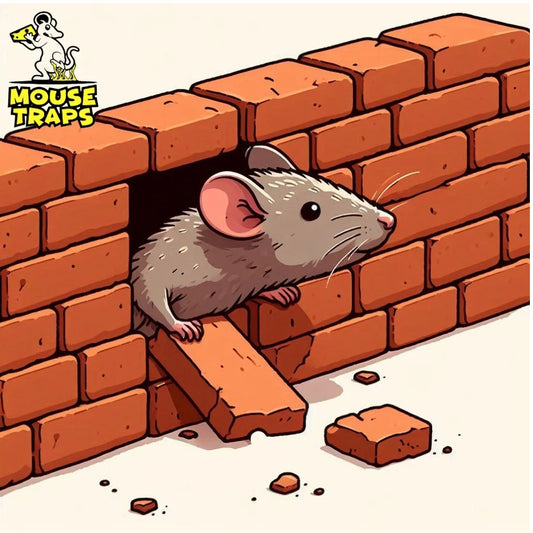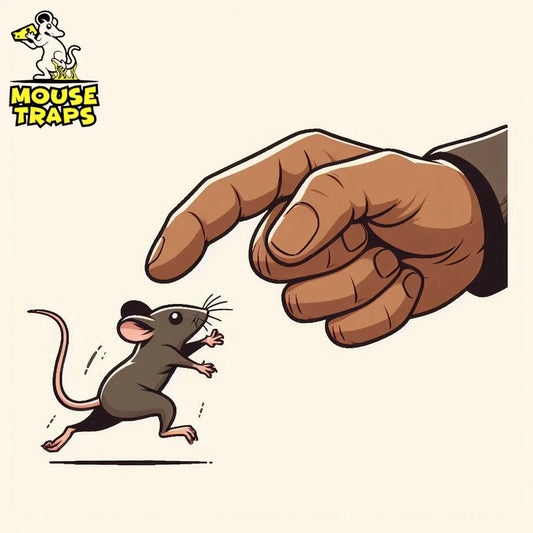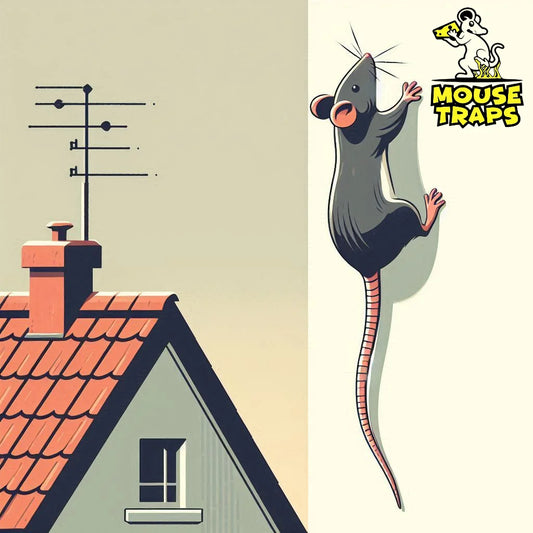Introduction
The presence of rats in drainage systems can pose significant health hazards and structural risks to properties. As a responsible homeowner or property manager in the UK, it's crucial to implement effective measures to deter rats from accessing your drainage system. In this comprehensive guide, we'll explore practical steps and preventive strategies to keep these rodents at bay and maintain a rat-free environment.
Understanding the Problem
Rat Infestation Statistics in the UK
- According to recent surveys, the UK faces a persistent rat infestation issue, with millions of reported cases annually.
- Rats are animals, able to thrive in different settings even in urban areas, with complex drainage systems.

Health Risks Associated with Rat Infestation
- Rats can spread illnesses like leptospirosis, salmonellosis and hantavirus which could be harmful, to both people and pets.
- Rat urine and feces that are contaminated can pollute drainage systems causing water sources to become contaminated and resulting in the spread of illnesses, on a scale.
Identifying Vulnerabilities in Drainage Systems
Common Entry Points for Rats
- Broken or damaged drainage pipes provide easy access for rats to enter properties.
- Poorly sealed manhole covers and vent pipes offer convenient entry points for rodents seeking shelter and food.

Factors Contributing to Rat Attraction
- Accumulation of food waste and debris in drainage systems attracts rats in search of sustenance.
- Improper waste management practices and overflowing bins near drainage openings exacerbate the problem.

Implementing Preventive Measures
Regular Maintenance of Drainage Systems
- Schedule routine inspections and maintenance of drainage pipes to detect and repair any damage promptly.
- Clear debris, grease, and food residues from drains to minimize the risk of rat infestation.

Sealing Entry Points
- Invest in durable materials to repair damaged pipes and seal gaps around manhole covers and vent pipes.
- Install rodent-proof grates or screens over drainage openings to prevent rats from entering.
Proper Waste Management
- Dispose of food waste properly and avoid dumping it near drainage systems.
- Use tightly sealed bins with lids to prevent access to food sources for rats.

Utilizing Rodent Deterrents
Natural Repellents
- Plant mint, lavender, or other aromatic herbs near drainage openings to deter rats with their strong scent.
- Peppermint oil or vinegar solutions can be sprayed around drainage areas to repel rodents.

Ultrasonic Repellent Devices
- Consider installing ultrasonic repellent devices designed to emit high-frequency sound waves that deter rats without harming humans or pets.
- Place these devices strategically near drainage entry points for optimal effectiveness.
Live Humane Traps:
Live Humane Traps provides a method to catch creatures, like mice without causing them harm. These traps usually use mechanisms that securely hold the animal until it can be set free in nature from homes. By adopting an approach these traps guarantee the safety of the animal promoting a relationship, between people and wildlife.

Benefits of live humane traps:
- Ethical treatment: Live traps prioritize the well-being of the captured animal, ensuring it is unharmed and can be safely released back into its natural habitat.
- Eco-friendly: By avoiding the use of poisons or harmful chemicals, live traps minimize environmental impact and promote sustainable pest control practices.
- Safe for pets and children: Since live traps do not use toxic substances or pose physical hazards, they are safer to use in households with pets and children.
- Compliance with regulations: In many regions, the use of humane traps aligns with animal welfare regulations, helping individuals and businesses remain compliant with legal standards.
WHEELIO Sticky Glue Pads traps:
Sticky glue mouse pads, on the other hand, are adhesive traps designed to capture mice by sticking them onto the surface. Set them alongside walls and in the are of mouse activity. By stepping in this trap mouse with stuck on it until you release it.

Benefits of sticky glue mouse pads:
- Cost-effective: Sticky glue traps are often inexpensive and readily available, offering an affordable option for pest control.
- Easy to use: These traps are easy to set up and maintain, which is great, for homeowners and businesses looking for a way to deal with issues.
- Compact and discreet: Sticky glue traps can be placed inconspicuously in areas frequented by mice, making them suitable for discreet pest control in homes and businesses.
- Immediate results: Sticky glue traps can quickly capture mice upon contact, providing immediate relief from infestations without the need for ongoing monitoring or baiting.
Seeking Professional Assistance
- If rat infestation persists despite preventive measures, seek assistance from licensed pest control professionals.
- Experts, in pest management can perform assessments apply solutions and offer continuous supervision to effectively eliminate rats.

FAQs (Frequently Asked Questions)
Q1: Can rats enter my property through toilet drains?
- Certainly rats have the ability to get into buildings through toilet drains particularly when there are pipes that are damaged or not sealed properly.
Q2: Are there any natural remedies to deter rats from drainage systems?
- Yes, planting aromatic herbs and using peppermint oil or vinegar solutions can help repel rats from drainage areas.
Q3: How often should drainage systems be inspected for rat infestation?
- It's recommended to schedule regular inspections at least once every six months to detect and address any issues promptly.
Q4: Are ultrasonic repellent devices effective against rats?
- Ultrasonic devices that repel rats can work well. Their efficiency might differ based on where you put them and the surroundings they're in.
Q5: What should I do if I suspect a rat infestation in my property?
- If you think there might be rats it's best to act by putting in place preventive steps and reaching out to expert pest control services for help.
Conclusion
To keep rats out of the drainage systems, in the UK it's important to take steps such, as upkeep sealing off entry points managing waste properly and utilizing deterrents. By putting these steps into place and reaching out to experts as required you can ensure the protection of your premises. Uphold a rat free setting, for the well being and safety of those residing there. Keep in mind that being watchful and responding promptly are essential, in reducing the dangers linked with rats invading your space.




